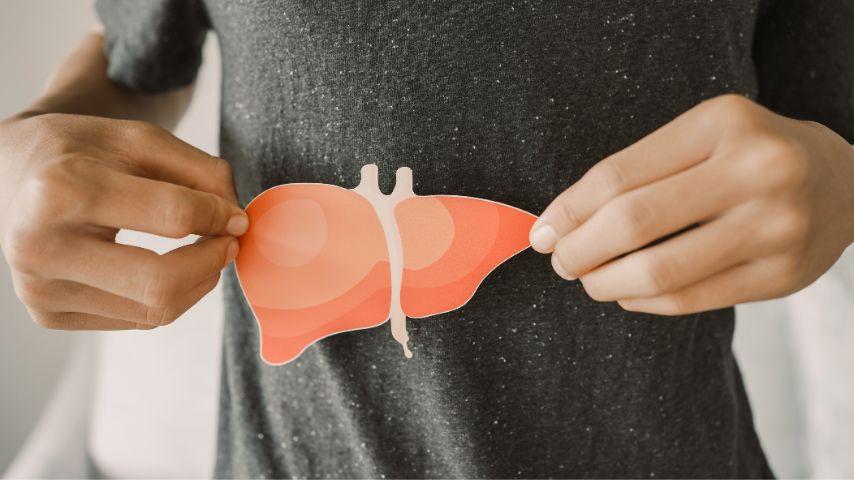Liver Cancer: Understanding the Disease and Treatment

Liver cancer, also known as hepatocellular carcinoma (HCC), is a formidable adversary that poses significant challenges to patients and healthcare providers alike. As a leading cause of cancer-related mortality worldwide, comprehending the intricacies of liver cancer, including its signs, causes, and treatment modalities, is paramount. In this informative guide, we'll delve into the nuances of liver cancer, shedding light on its manifestations, etiology, diagnostic procedures, and therapeutic interventions. Offering insights into this complex disease, Dr. Bhuvan, a distinguished Consultant in Medical Gastroenterology & Hepatology, underscores the importance of early detection and multidisciplinary management in combating liver cancer.
Signs and Symptoms:
Liver cancer often presents with nonspecific symptoms in its early stages, making it challenging to detect. However, as the disease progresses, individuals may experience:
- Abdominal pain or discomfort, particularly in the upper right quadrant.
- Unexplained weight loss or loss of appetite.
- Jaundice, characterized by yellowing of the skin and eyes.
- Fatigue and weakness.
- Swelling in the abdomen or legs.
- Nausea and vomiting.
- Enlarged liver or palpable mass.
Causes:
Several factors contribute to the development of liver cancer, with chronic liver disease being the most significant risk factor. Key etiological factors include:
- Chronic viral hepatitis B or C infection.
- Cirrhosis, often resulting from long-term alcohol consumption, viral hepatitis, or nonalcoholic fatty liver disease (NAFLD).
- Exposure to aflatoxins, carcinogenic substances produced by molds found in certain foods.
- Nonalcoholic steatohepatitis (NASH), a severe form of fatty liver disease.
- Hemochromatosis, a genetic disorder characterized by excessive iron absorption.
Procedure:
Diagnosing liver cancer typically involves a combination of imaging studies, blood tests, and biopsy procedures. Common diagnostic tests may include:
- Ultrasound: Used to visualize the liver and detect any abnormalities or masses.
- Computed Tomography (CT) Scan: Provides detailed cross-sectional images of the liver and surrounding structures.
- Magnetic Resonance Imaging (MRI): Offers high-resolution images for evaluating liver tumors and assessing disease extent.
- Blood Tests: Measure levels of liver enzymes, alpha-fetoprotein (AFP), and other markers indicative of liver function and cancer activity.
- Biopsy: Involves the removal of a tissue sample from the liver for pathological examination to confirm the presence of cancer cells.
Treatment:
The choice of treatment for liver cancer depends on various factors, including the stage of the disease, tumor size, location, and overall health status of the patient. Treatment options may include:
- Surgery: Surgical resection or liver transplantation may be recommended for localized tumors.
- Ablation Therapy: Techniques such as radiofrequency ablation (RFA) or microwave ablation (MWA) can destroy cancerous tissue using heat energy.
- Transarterial Chemoembolization (TACE): Delivers chemotherapy drugs directly to the tumor site via the hepatic artery, followed by the blockage of blood flow to the tumor.
- Targeted Therapy: Drugs targeting specific molecular pathways involved in cancer growth, such as sorafenib or lenvatinib, may be prescribed for advanced-stage liver cancer.
- Immunotherapy: Stimulates the body's immune system to recognize and attack cancer cells, offering a promising approach in the treatment of advanced HCC.
Conclusion:
Liver cancer presents formidable challenges, but with early detection, multidisciplinary management, and advances in treatment modalities, significant strides can be made in improving patient outcomes and quality of life. By raising awareness, advocating for screening programs, and investing in research, we can strive towards better prevention, early diagnosis, and more effective therapies for liver cancer. Together, we can combat this formidable foe and offer hope to those affected by this devastating disease.
Specialities
Clear allMeet the doctor

Dr Bhuvan Shetty
Hepatology
MBBS, MD (Internal Medicine), DM (Gastroenterology)











